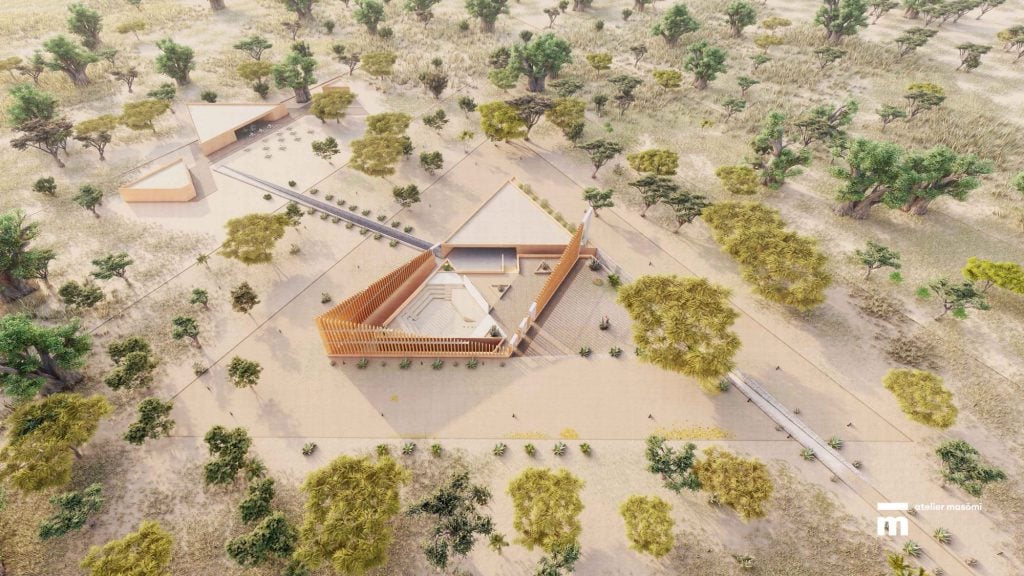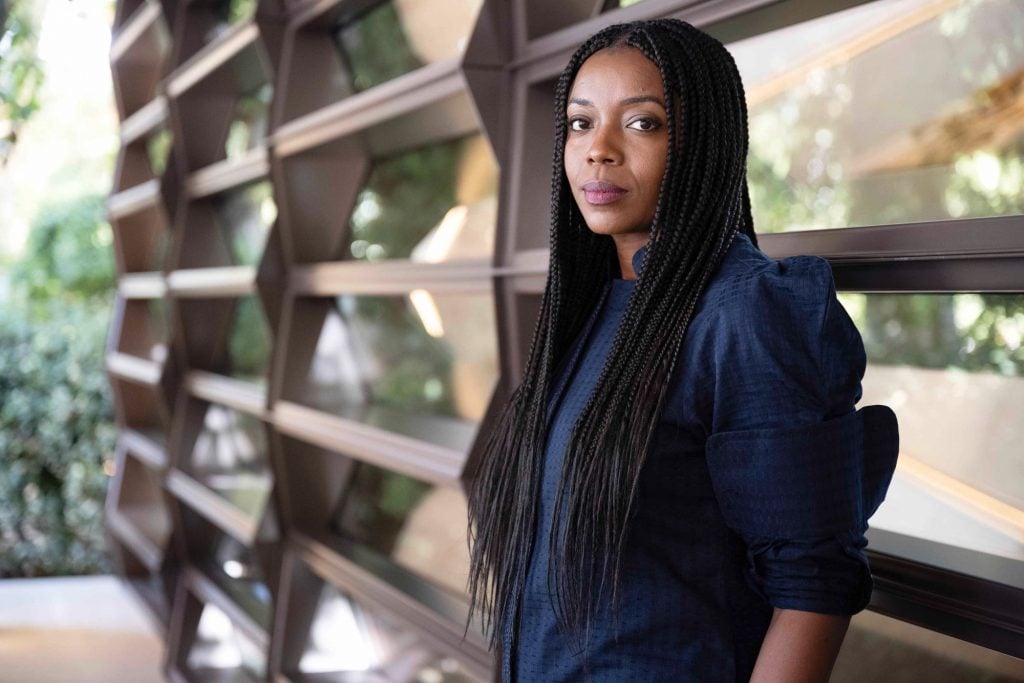Museums & Institutions
The Albers Foundation Is Opening a Museum in Senegal to Show African Art and Facilitate the Repatriation of Objects From the West
The museum will open near Kaolack in 2025.

The museum will open near Kaolack in 2025.

Jo Lawson-Tancred

A new museum and center for culture and community is set to open in 2025 near Kaolack in Senegal, according to an announcement by the Josef and Anni Albers Foundation and Le Korsa.
Bët-bi, which means “the eye” in Wolof, will showcase contemporary and historical African art, as well as offering a special educational program. Local curators and museum professionals will staff the museum, which will also participate in guest curator programs with other institutions in Africa and internationally.

Rendering of the proposed Bët-bi museum and center for culture and community in Senegal © atelier masōmī.
The museum will also act as a facilitator between Western collections and African nations by serving as a temporary space to store repatriated African objects for communities that do not yet have the resources to care for them.
Nicholas Fox Weber, executive director of the Josef and Anni Albers Foundation and founder of Le Korsa, which oversees the foundation’s philanthropic initiatives in rural Senegal, said, “people who may never before have entered a museum as well as international visitors will have the chance to enjoy art that relates to the culture of the Sahel.”

Portrait of Mariam Issoufou Kamara © Rolex / Stéphane Rodrigez Delavega.
The architect Mariam Issoufou Kamara, who has been selected from a shortlist of four candidates to design the museum, was inspired by the ancient stone monoliths that are typical of the local Kaolack region.
“For far too long our region has been a place where cultural wealth is pillaged to profit museum collections. This project is an opportunity to design a new type of space that is inspired by the roots and spiritual legacy of the region,” said Kamara. “It is a chance to push the boundaries of what defines a museum in the 21st century.”
Weber added, “[Kamara’s] profound respect for local traditions, keen awareness and knowledge of environmental impact, and eye for visual beauty will result in a building sure to help revitalize the economy of the region.”
Kamara, who comes from Niger, is the founder of atelier masōmī, which is also responsible for award-winning commissions including the Hikma Community Complex and the Dandaji Regional Market.